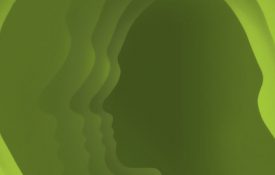-

Biennial International Seminar on the Teaching of Psychological Science to Commence July 2024
The 3rd Biennial International Seminar on the Teaching of Psychological Science (BISTOPS) will take place July 1 – 5, 2024 in Paris at Maison Suger, at the Fondation Maison des Sciences de l’Homme—Maison Suger’s residential and working facility.
-

New Content From Advances in Methods and Practices in Psychological Science
A sample of articles on young children’s gaze behaviors, improving the predictive power of psychometric scales, using market-research panels for behavioral science, and much more.
-
4 Ways to Instantly Relieve Stress Before a Job Interview
No matter how confident you are, certain situations will likely make you nervous, and a job interview falls firmly into that category. Even if you know you’re qualified, answering questions about yourself can feel intimidating. Fortunately, there are a few things you can do before you walk into the conference room or get on a call that will reduce your anxiety in the moment, says Richard Newman, author of Lift Your Impact. “Feeling a little nervous before an interview is completely normal,” he says.
-
Failure Is an Art and How to Do It, or Avoid It, Like a Champion
Failure as a noun means lack of success, omission of required action, or the collapse of a business. It can be embarrassing and painful to experience. Most will do anything to avoid failure—nobody wants to fail. “We want to prevent failure, and that’s why we come up with reasons for why we shouldn’t do things we want to do. We tell ourselves no because we don’t think we’re ready yet,” James Clear, author of Atomic Habits, says. “It’s also why we abandon our ideas. But ‘no’ rarely means impossible …. Usually if someone tells you no, what they really mean is ‘not right now or ‘not in that way.’” Experts agree failure isn’t a destination but more so a redirection.
-
What Makes a Person Trustworthy? Science May Provide Some Clues
Knowing who to trust is part and parcel of everyday life. Instinctively we may trust one person but not fully understand why. Researchers have puzzled over this question for decades, trying to piece together what makes a person trustworthy or not. “Trustworthiness is essentially being a prosocial person,” says Sebastian Siuda, a psychologist who researches the dynamics of trust. “If somebody opens up to you and makes [themselves] vulnerable to you, you don’t use that act for your own good, but you repay that vulnerability.” ...
-

Loneliness Across the Globe: A Life-Span Approach
Podcast: Under the Cortex hosts Samia Akther Khan, King’s College London, whose research examines the feeling of loneliness across lifespan.

